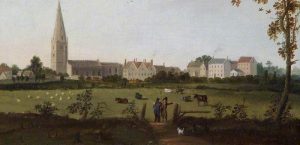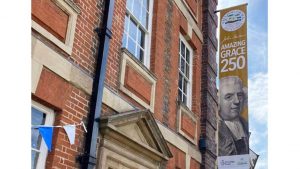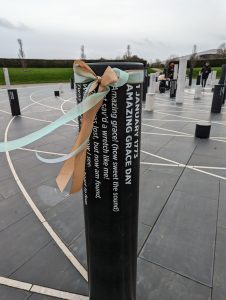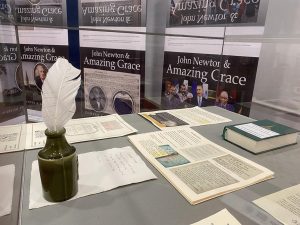To mark the 250th anniversary of the writing of the hymn, Amazing Grace, by the Rev’d John Newton in the town of Olney, a new piece of of music for voice and chamber ensemble was commissioned by Cowper & Newton Museum with The Stables to explore what the hymn might mean to people today.
Saturday 22nd July 2023 saw the premiere of this new work, titled Forever?, performed at the Stables and as part of IF: International Festival
Forever?
Forever? (world premiere) composed by Roderick Williams
text written by Rommi Smith
Chineke! Chamber Ensemble
Andrea Baker, mezzo-soprano
Ronald Samm, tenor
Sweet Sound Choir
Leon Bosch, conductor
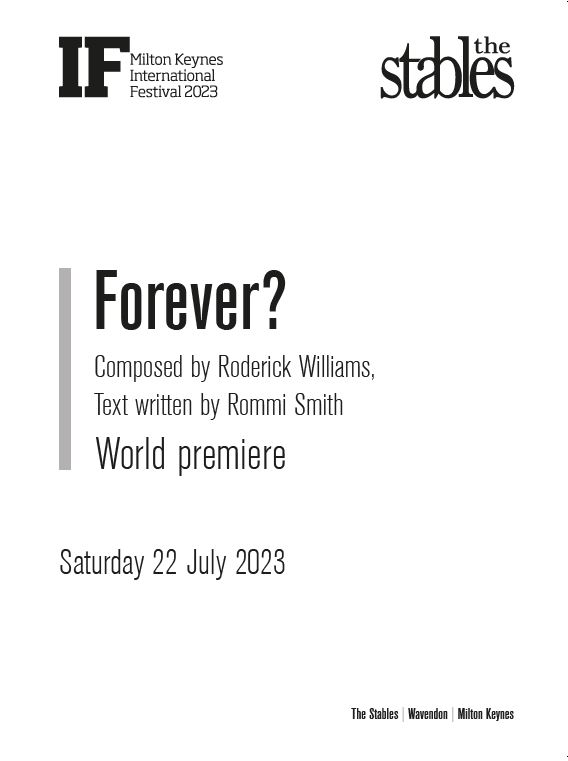
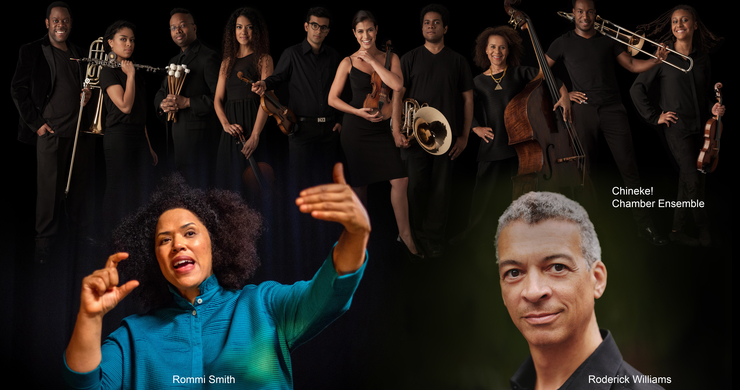
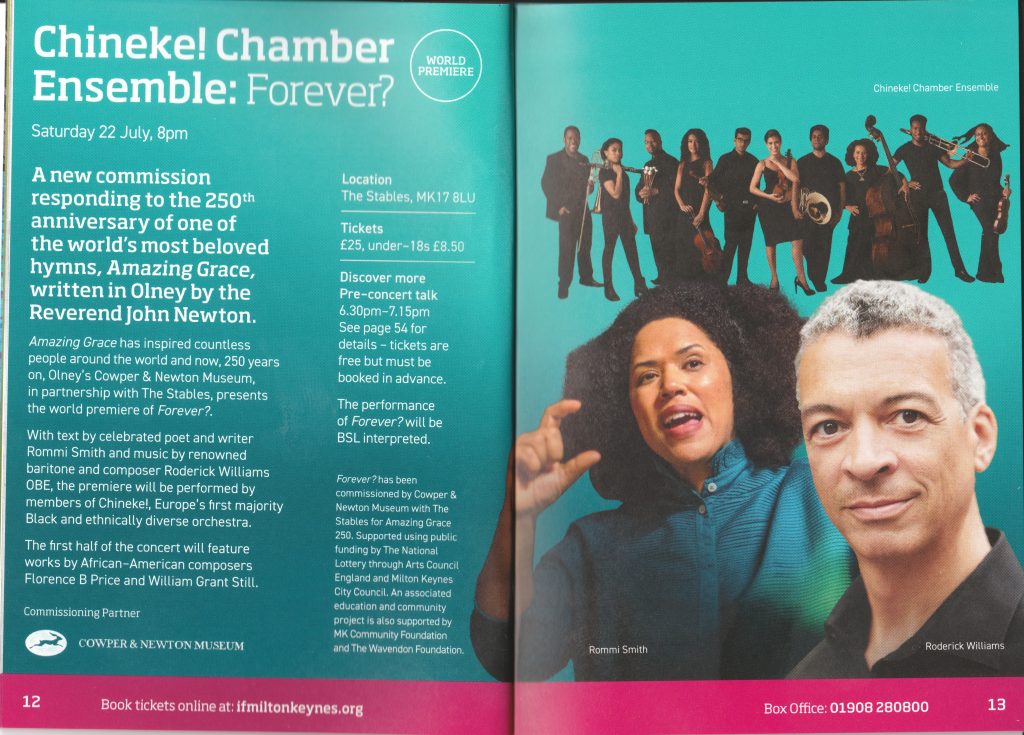
Forever? (2023)
Roderick Williams (b.1965) with text written by Rommi Smith (b.1973)
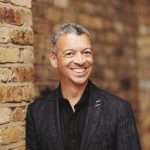
Tim German, Olney resident and singer himself, contacted me several years ago with an idea for a composition that might commemorate the 250th anniversary of the sermon that became
the iconic hymn Amazing Grace. He suggested the commission to the Cowper & Newton
Museum which then joined forces with The Stables to make it happen.
I was very excited to learn that a chamber ensemble from Chineke! would be taking part
alongside a new community gospel choir recruited from across the Milton Keynes area,
formed specifically for this project.
In my search for a text, I turned to Rommi Smith, with whom I have recently collaborated on
composition and recital projects. She interviewed a range of people who have personal and
varied responses to Amazing Grace, from which Rommi crafted these poems. Each poem is
prompted by a different question concerning the meaning and legacy of AG250 for people
today. Her varied poetic structures inspired me both in terms of my emotional response and
from a musical, architectural standpoint.
While the piece begins, almost unavoidably, by quoting the folk melody associated with
Amazing Grace, the tune is soon altered in order that new themes can emerge. The
movements vary between voices, solo and chorus, with different instruments coming to the
fore so that each song has its own sound world.
I hope the result will satisfy those who revere Amazing Grace, those who are wary of it, those
who have magical stories to tell from their acquaintance with these immensely powerful words.
Roderick Williams, July 2023
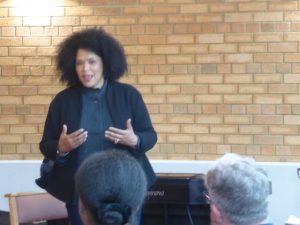 I am absolutely delighted to be part of Amazing Grace 250, working, as writer, in collaboration with celebrated composer and musician, Roderick Williams, the renowned Chineke! ensemble – and dynamic project partners: Cowper & Newton Museum and The Stables as part of IF: Milton Keynes International Festival. My gratitude to all who are breathing life into the performance of the words and music of this new work: Andrea Baker, mezzo-soprano; Ronald Samm, tenor; Leon Bosch, conductor and director; and to Craig McLeish and the AG250-project-curated Sweet Sounds Choir, for its heartfelt work. The choir symbolises two bright words which sit at the centre of this project: community and participation.
I am absolutely delighted to be part of Amazing Grace 250, working, as writer, in collaboration with celebrated composer and musician, Roderick Williams, the renowned Chineke! ensemble – and dynamic project partners: Cowper & Newton Museum and The Stables as part of IF: Milton Keynes International Festival. My gratitude to all who are breathing life into the performance of the words and music of this new work: Andrea Baker, mezzo-soprano; Ronald Samm, tenor; Leon Bosch, conductor and director; and to Craig McLeish and the AG250-project-curated Sweet Sounds Choir, for its heartfelt work. The choir symbolises two bright words which sit at the centre of this project: community and participation.
There are twenty-three people whose stories inspire the text I’ve written: from free verse to ballad, contrapuntal form to acrostic. From Olney to New York; Milton Keynes to Leeds; Sierra Leone toSouth Africa – people shared their personal stories of connection – and disconnection – to Amazing Grace with me. Why twenty-three interviews?; to mark 2023 and 250 years since John Newton wrote Amazing Grace. From children to clergy, activists to actors, musicians to managers, people talked about a song that has become iconic and anthemic, in personal terms. It was inspiring to listen. So often, our unfolding discussions touched upon a memory, or an association, which surprised the contributor; one that they had rarely talked about with anyone, if at all. Interviewing processes are a feature of my work, as a writer, and I decided to bring this approach to this commission. Whilst Amazing Grace is, so often, solace and comfort in turbulent emotional seas (and is beloved everywhere from White rural churches in the British countryside, to Black Gospel Churches in Harlem – and, more widely, in Black American cultural life), it was, as many know, written by John Newton, a former slaver, turned curate, turned reverend, turned late, overt, contributor to the British abolitionist movement. Newton’s revered status is, therefore, felt by some of the descendants of those who were enslaved, to be salt to a four-hundred-year-old wound.
I suggested the title, Forever? (with that all-important question mark) for several reasons: theologically (and I am grateful to Marylynn Rouse for this particular detail), the word forever is referenced eight times in 1 Chronicles 17; the word also appears in the final line of the final verse/ stanza of Newton’s hymn; for several people I interviewed, the comfort and pride in the hymn is that it feels as if it has been around forever; but, further, in questioning and imagining a different conversation around the hymn – in context of Newton’s slaving narrative – a question emerged: should we sing this song forever? I hope that this piece is this moment’s reply.
Special thanks to: Roderick Williams; Amanda Molcher, Trustee of the Cowper & Newton Museum; Monica Ferguson and Graeme Surtees of The Stables; Ophelia Cole, Councillor with Campbell Park Parish Council and Secretary of the Sierra Leone Committee, Milton Keynes; Wain McIntosh MBE, Chairman of the Friends of the Caribbean, Milton Keynes; Catherine Ross Founder Director and Lynda-Louise Burrell, Creative Director, of Museumand, The National Caribbean Heritage Museum; Debbie Brock; Valeriia Kravchenko; Kate Nicholas; Anni Domingo; Kate Bostock, Marylynn Rouse, The John Newton Project; Mike Love of Together for Peace, Leeds; Professor Jim Walvin, Emeritus Professor, University of York; Tate Gumbi; Catriona and Tim German; it was Tim’s idea for there to be a new choral work which, in some way, responds to Amazing Grace. And a heartfelt thanks to all those who wished to, or had to, remain anonymous.
Rommi Smith, July 2023
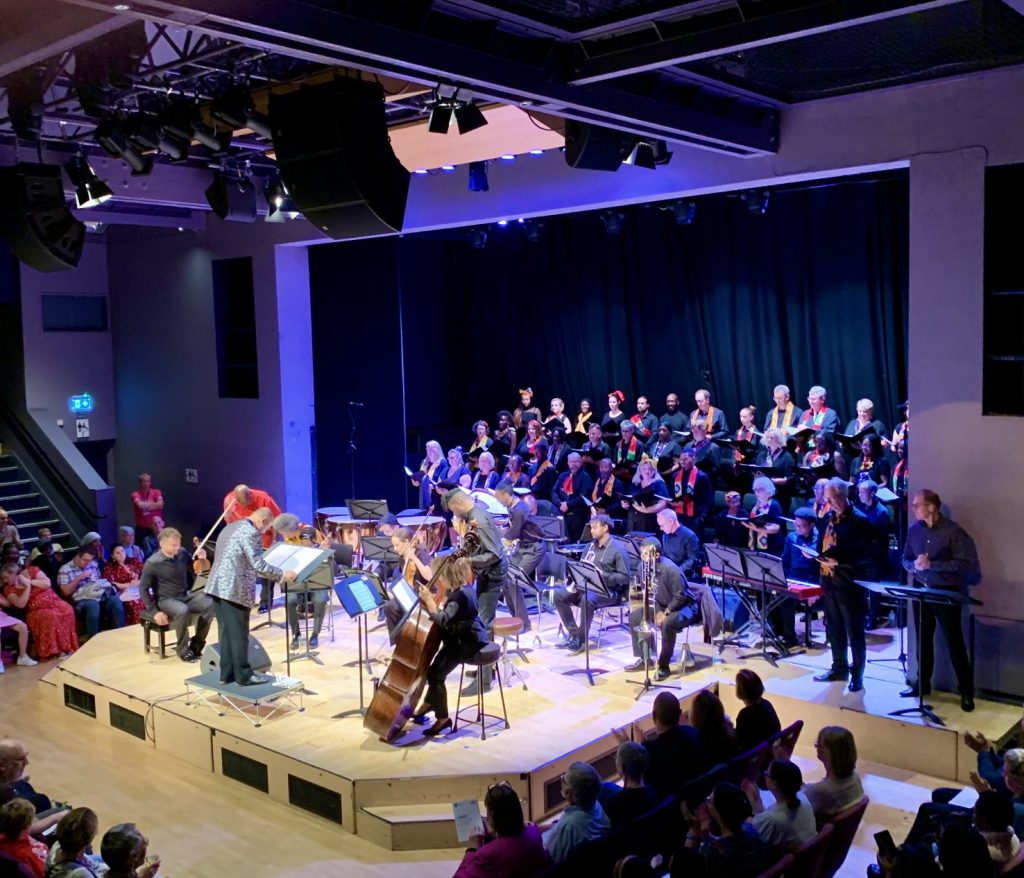
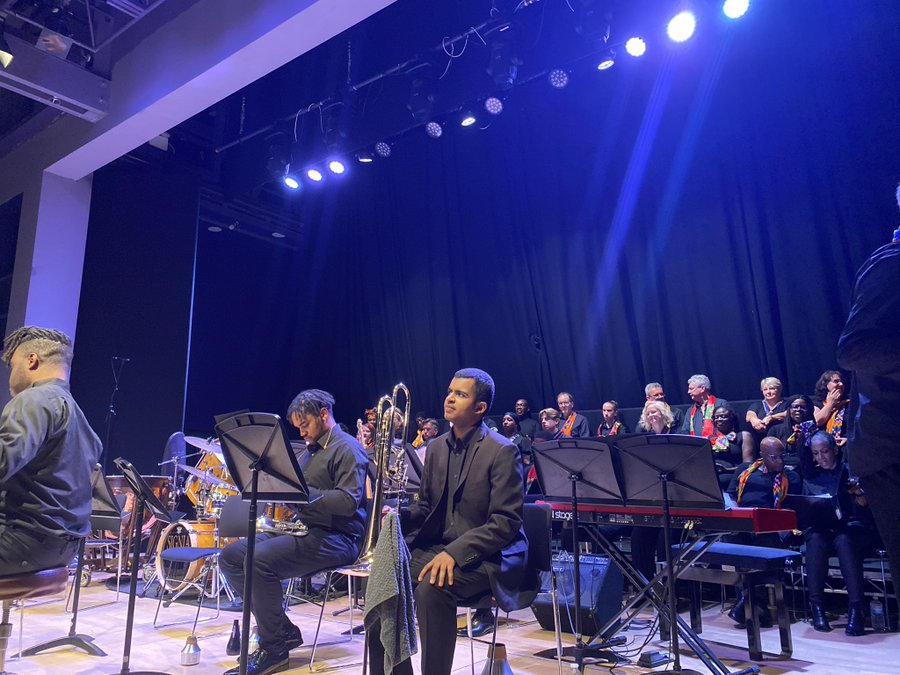
SONG 1: WHAT IS AMAZING GRACE?
SONG 2: SANCTUARY
Q: When did you discover the hymn Amazing Grace?
SONG 3: REDEFINING AMAZING GRACE
Q: Who does Amazing Grace belong to?
SONG 4: AMAZING
after Robert MacFarlane*
Q: Is there a word in the hymn you’d describe as a “lantern-word”?
SONG 5: GLORIOUS THINGS?
Q: John Newton worked in the slave trade. Does this influence how you see
the hymn Amazing Grace?
SONG 6: HOMECOMING
Q: When were you first aware of the song Amazing Grace?
SONG 7: LIBERTY
Q: Has Amazing Grace been a comfort to you?
SONG 8: A HYMN’S REVIEW?
(A CONTRAPUNTAL POEM)
Q: What is your earliest memory of singing Amazing Grace?
SONG 9: HEALING
(A SPECULAR POEM)
Q: Do you have a memory connected to the hymn?
SONG 10: REASONS FOR SINGING AMAZING GRACE
After Ocean Vuong
Q: Why do you continue to sing Amazing Grace?
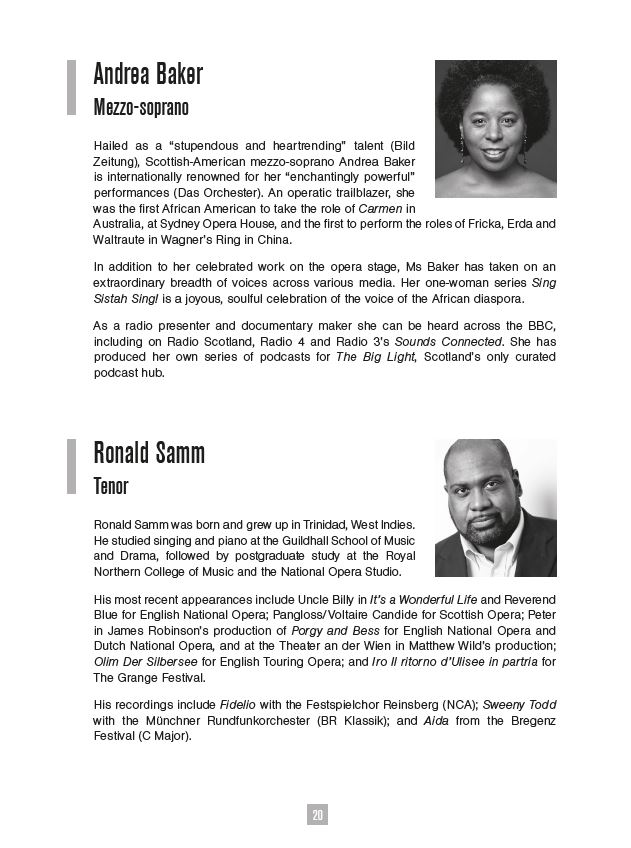
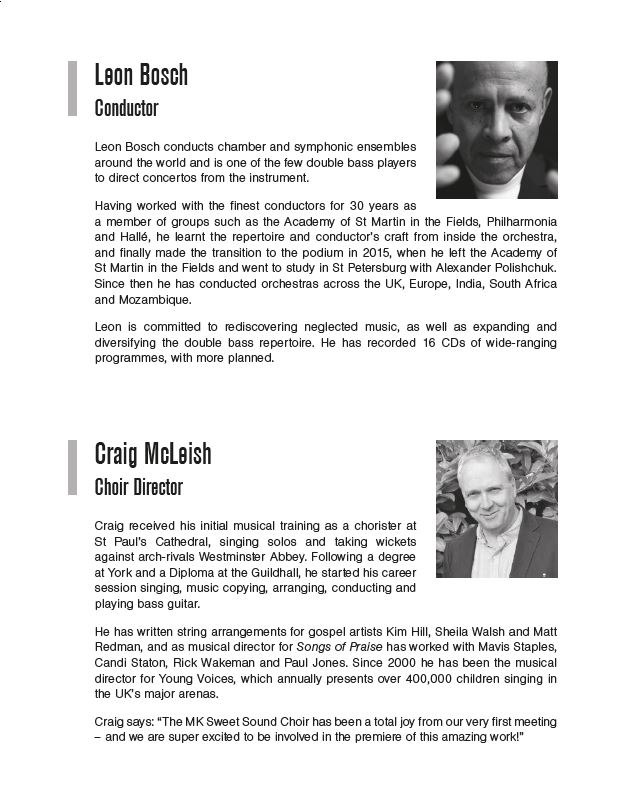
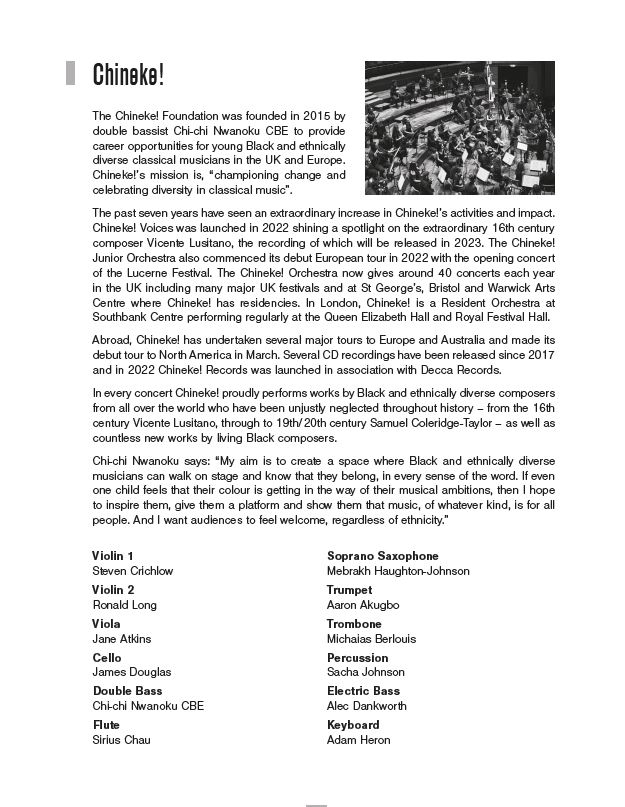
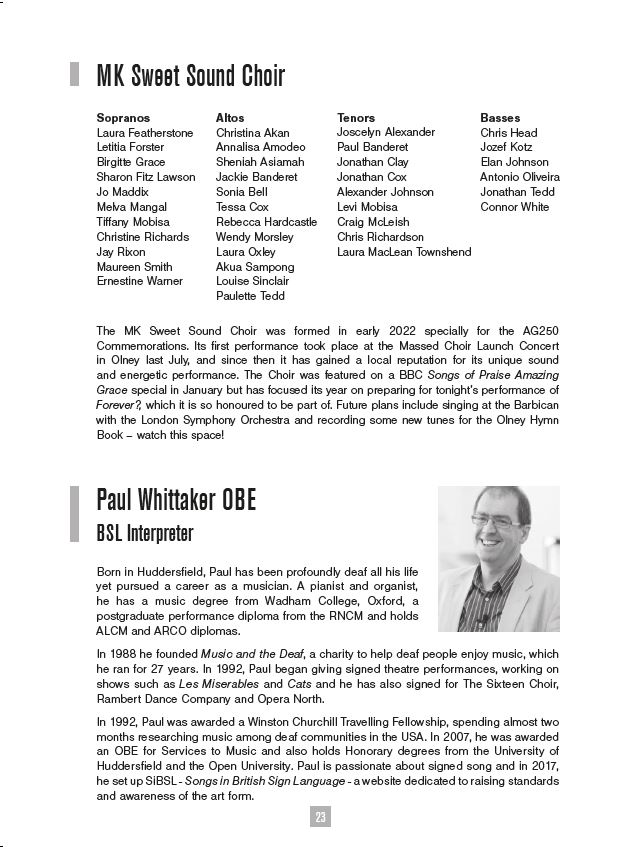
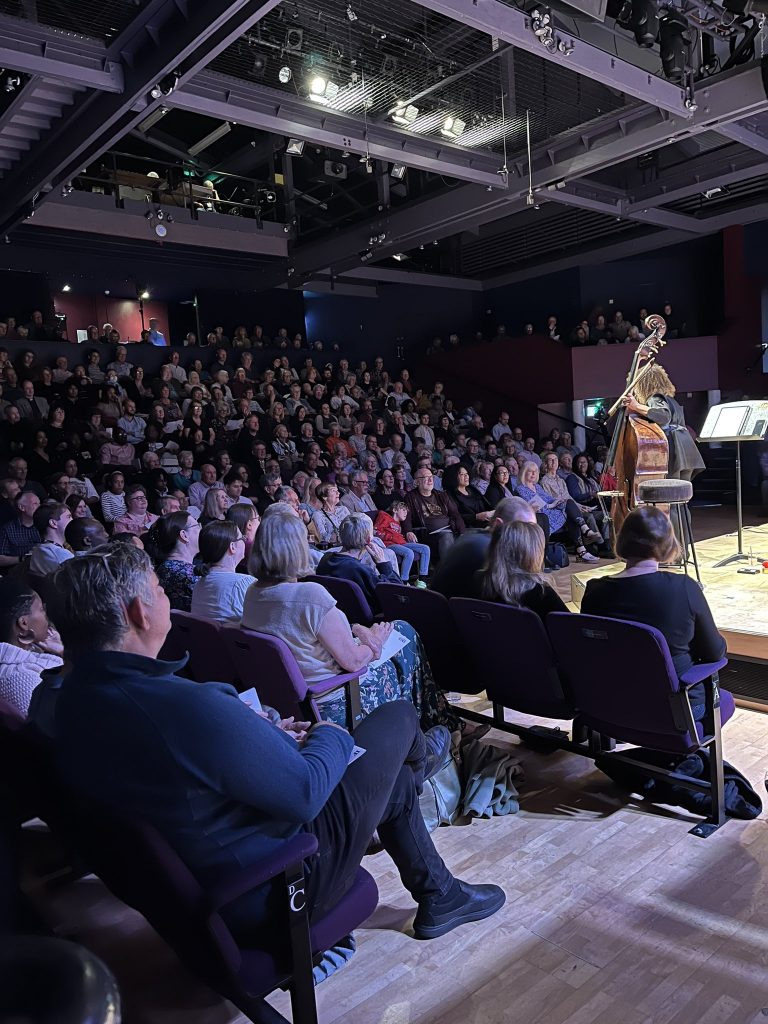
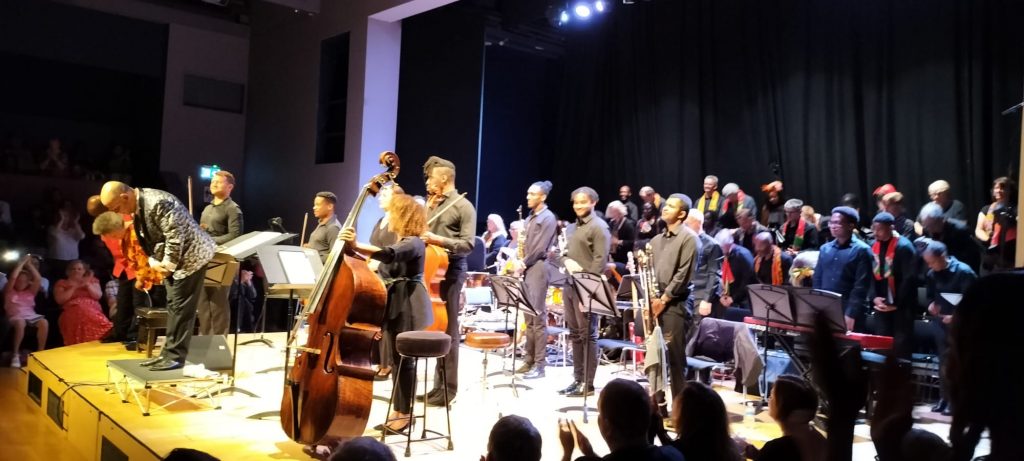
Supported using public funding from The National Lottery through Arts Council England and Milton Keynes City Council.
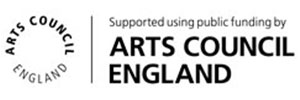

Find out more about the The Amazing Grace 250 Project & Programme
Find out more about the history of the hymn Amazing Grace



